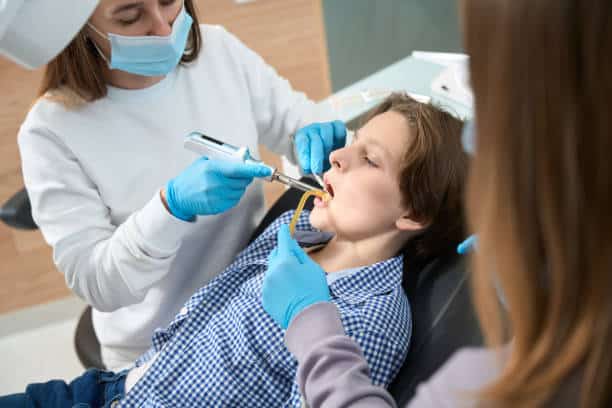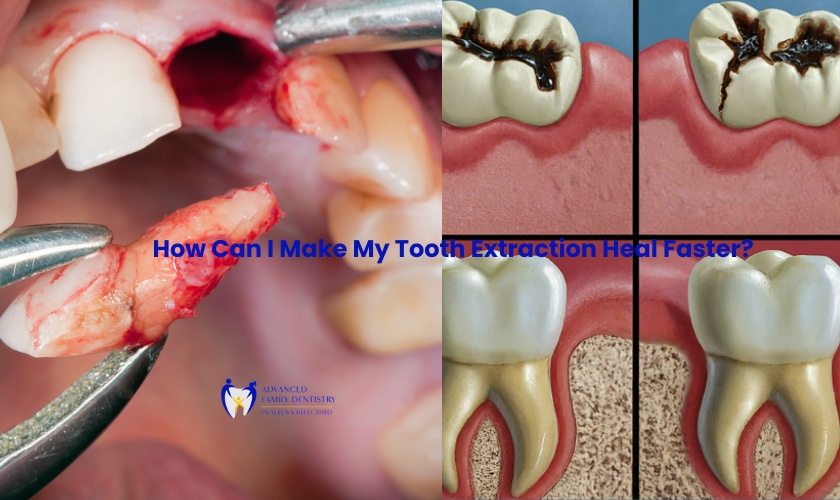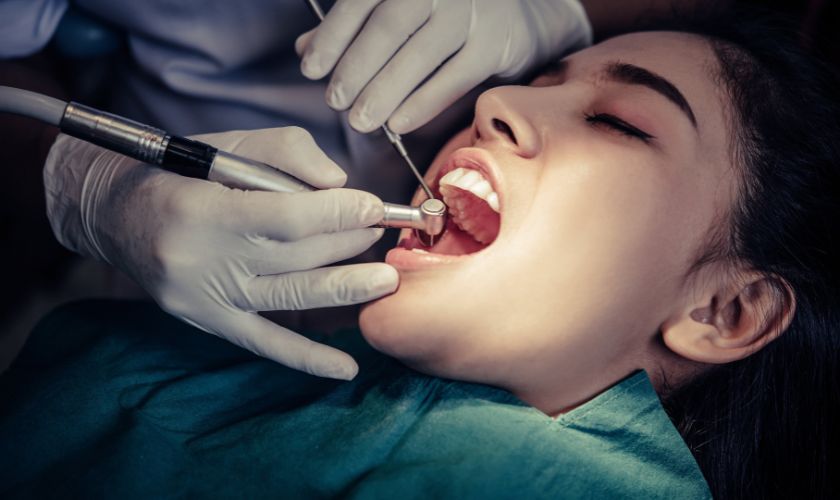Top Family, Cosmetic and Implant Center In 537 Amherst St, Nashua, NH 03063
Everything You Need to Know About Tooth Extraction

Are you dreading an upcoming tooth extraction? Or are you recovering from one and unsure what to expect? Of course, having questions and concerns about such a significant dental procedure is natural. But fear not! In this blog post, we’ve got everything you need to know about recovering from tooth extraction. From pre-surgery preparations to post-op care tips, we’ll cover all the bases so you can feel confident and informed throughout the process. So please sit back, relax, and let us guide you toward a healthy smile.
What is Tooth Extraction?
Tooth extraction is the process of removal of a tooth by a dentist. Teeth are commonly replaced one at a time, but sometimes, teeth may need to be extracted as part of a dental treatment plan. There are several types of tooth extraction procedures, including:
Traditional extractions: In standard extractions, the dentist first opens the gum tissue above the tooth and then uses suction to remove the tooth.
Rotor surgery: Rotor surgery is similar to traditional extractions but uses spinning blades on a surgical machine to remove the tooth. This procedure is usually less painful than conventional extractions and is considered less invasive.
Minimally invasive extractions: Minimally intrusive extractions use tiny incisions that minimally damage surrounding tissue. This procedure is often preferred over rotor surgery because it reduces pain and causes faster healing.
If you are considering having your teeth extracted, discuss your case and options with your dentist.
Types of Tooth Extraction
There are primarily three main types: general anesthetic, local anesthetic, and no anesthesia. General anesthesia is the most typical type of extraction and involves putting someone to sleep before the surgery. Local anesthetics numb the area around the tooth but do not put them to sleep. No anesthesia means you will feel everything during the extraction.
Preparation for Tooth Extraction
It is a standard procedure that many people undergo. It can be an incredibly scary experience, but with the proper preparation, it can go as smoothly as possible. Here are specific tips to help make the process as smooth as possible:
1. Make sure to get a complete dental exam prior to tooth extraction. It will let your dentist know exactly what needs to be done and avoid surprises during surgery.
2. Make sure you are fully aware of what is happening during the procedure. Write down everything that happens so you don’t have to try and remember it all later on.
3. If you feel nauseous or lightheaded, drink plenty of fluids before surgery and throughout the recovery period. These symptoms can be caused by anesthesia or general anxiety and must be treated immediately.
4. Avoid eating large meals right before or after surgery. It will only add to your discomfort and may delay healing time for the wound site. Instead, have a light breakfast or lunch beforehand, followed by a small snack after surgery if desired.
5. Be patient! In most cases, recovery from a tooth extraction can take up to two weeks, but with good planning and coordination from your medical professionals, it should go smoothly!
Recovery After Tooth Extraction
Tooth extraction is a standard dental procedure that can be accomplished in a number of ways, depending on the patient’s needs and preferences. The process typically takes one hour and can be done under local or general anesthesia.
Following this procedure, patients will usually need to take some painkillers to reduce the amount of discomfort they experience. In some cases, antibiotics may also be prescribed as a precaution. In addition, patients should follow their dentist’s instructions regarding rest and activity levels following tooth extraction.
Most people recover reasonably quickly following a tooth extraction, though some may experience minor pain or swelling for some time. It is essential to keep appointments following tooth extraction so the dentist can monitor any problems and ensure proper healing.
The Bottom Line
Tooth extraction is a traumatic experience that can make you anxious and scared. If you’re recovering from tooth extraction, it’s essential to know the following so that you can feel as comfortable as possible during your recovery:
The majority of people heal wholly and quickly after an extraction; however, there are rare cases where someone does not recover fully. In these cases, long-term care may be necessary. To reduce any anxiety that might occur during your recovery, keep up with oral hygiene instructions carefully. Avoid eating anything hard or crunchy for the first few days after your procedure to minimize swelling and pain.
Talk to your dentist about any questions or concerns about your recovery process. They can provide additional support and advice should you need it.




